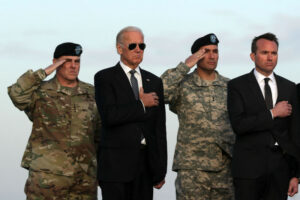
Biden is proposing to combine Obama’s muscular multilateralism with Trump’s focus on great power rivalry with China and Russia. This augurs not the peace that liberals hoped for, but a dangerous reassertion of U.S. imperial power.
Ashley Smith is the managing editor at Spectre and a member of the Democratic Socialists of America in Burlington, Vermont.

Biden is proposing to combine Obama’s muscular multilateralism with Trump’s focus on great power rivalry with China and Russia. This augurs not the peace that liberals hoped for, but a dangerous reassertion of U.S. imperial power.

Continuing the debate on the left and the election, Charlie Post and Ashley Smith respond to Stephen R. Shalom’s criticisms of their article, “The lesser evil trap.”
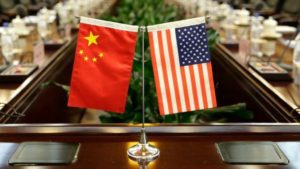
The United States and China are locked in a spiraling conflict over everything from the pandemic to trade, investment, high tech, geopolitics, and military hegemony in Asia.
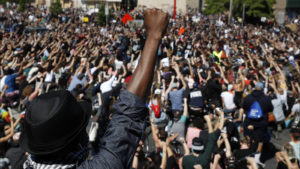
A new working-class party will be built primarily through mass struggles like the current uprising and the strikes and workplace demonstrations that took place amidst the pandemic, and through running candidates locally on independent ballot lines.

Ashley Smith and Charles Post respond to criticisms of their article “Facing Reality: The Socialist Left, the Sanders Campaign and Our Future.”

Capitalism is a failed system that offers more pandemics, more economic crisis, more climate disaster, more oppression, and more war.
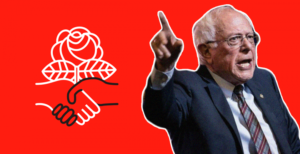
A little over a month ago, many on the new socialist left expected Bernie Sanders to win the Democratic Party nomination, defeat Donald Trump in the general election, and enact a program of social democratic reform as President of the . . .
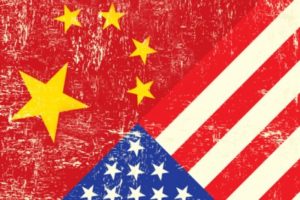
Editors’ note: This is the first of three articles providing analysis of what’s happening now in China – and why.

The British political system has been thrown into turmoil since the summer of 2016, when a narrow majority of voters supported a referendum in favor of Britain leaving the European Union (EU). The Conservative Party government headed by Prime Minister . . .

With the recent announcement of Prime Minister Theresa May’s pending resignation, and the general chaos surrounding Brexit and British governance, New Politics has decided to offer a preview of a lengthier article which . . .

The Syrian Revolution has tested the left internationally by posing a blunt question: Which side are you on? Do you support the popular struggle against dictatorship and for democracy? Or are you with Bashar al-Assad's brutal regime, his imperial backer Russia, his regional ally Iran and Iran's proxies like Hezbollah from Lebanon?
Tragically, too many have failed this test.
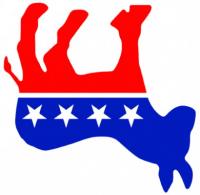 Senator Bernie Sanders’ run for the Democratic Party nomination for president has certainly energized thousands. It has also rekindled an old debate on the American left that revolves around the question: Should the left join, endorse, support, or work for campaigns in the Democratic Party?
Senator Bernie Sanders’ run for the Democratic Party nomination for president has certainly energized thousands. It has also rekindled an old debate on the American left that revolves around the question: Should the left join, endorse, support, or work for campaigns in the Democratic Party?

The following introduction is by the editors of SocialistWorker.org where this FAQ was originally published.
Bernie Sanders kicked off his campaign for the Democratic Party presidential nomination with a large and enthusiastic rally in Burlington, Vermont, on May 26.
Sanders’ candidacy has prompted discussion and debate among a left shaped by recent struggles such as Occupy Wall Street, the Chicago teachers strike, Fight for 15, Black Lives Matter and the climate justice movement. Many radicals, publications and organizations either support Sanders’ Democratic Party run outright or believe his campaign can be used to build the infrastructure for a stronger left. By contrast, SocialistWorker.org has argued Sanders’ campaign will serve to corral and co-opt the emerging left into supporting the Democratic Party–and make it harder, not easier, to build an independent, left-wing alternative.
Here, Ashley Smith and Alan Maass respond to some of the questions and disagreements posed by SocialistWorker.org readers during the course of the discussion so far.
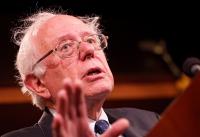
The upcoming presidential contest was shaping up to be one of the most underwhelming in electoral history. An heir to the Bush dynasty, real estate magnate Jeb, looked like the safest bet to become the Republican presidential nominee, and challenge the anointed frontrunner from the Democrats' leading dynasty, corporate drone Hilary Clinton.